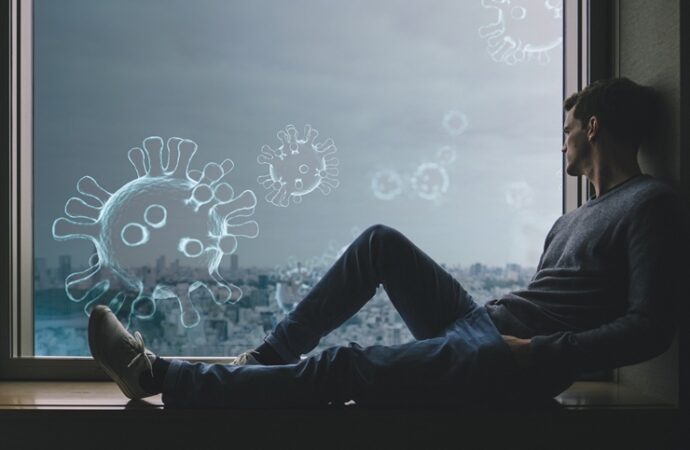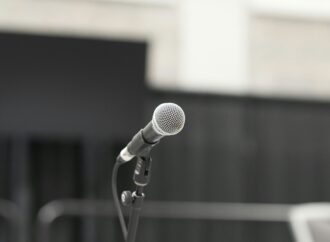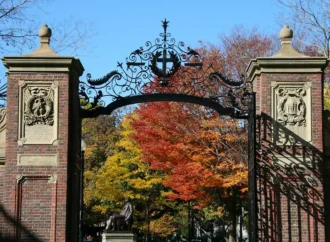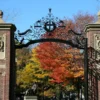This year has brought us a brutal lesson in the truth of the phrase “Ideas Have Consequences,” popularized by political philosopher Richard Weaver in 1948. Weaver argued that the rise of relativism was damaging Western civilization, eroding our abilities to use reason and logic for problem solving.
Such loss of reason and logic have been on full display this year and may only get worse in the next.
For example, the world will soon be facing a hunger crisis because of the unprecedented ways in which many governments have handled this pandemic. Some 270 million people around the globe may soon face starvation, warns David Beasley, the United Nations World Food Programme chief. This dearth of foodstuffs, Tyler Durden reports at Zero Hedge, is the direct result of measures put into place during the pandemic: the breakdown in global shipping and transportation, widespread unemployment, the rising cost of food, and the lack of funds because so much money has been spent fighting the virus.
Figures a little less dire than Beasley’s, but nonetheless staggering, are offered by Dr. Jay Bhattacharya, Professor of Medicine at Stanford University in the excellent article, “A Sensible and Compassionate Anti-COVID Strategy.” “In the past 20 years,” Bhattacharya writes, “we’ve lifted one billion people worldwide out of poverty. This year we are reversing that process to the extent—it bears repeating—that an estimated 130 million more people will starve.”
Bhattacharya briefly devotes his attention to some of the other costs of the lockdowns that don’t always make the evening news: the patients suffering from cancer and heart disease who were too frightened of the coronavirus to visit the hospital, parents who for the same reason didn’t get immunizations for their children, the surge in suicide threats among our young people, and mental health problems in all ages.
Our governors and mayors responsible for locking down businesses and schools continue to receive their paychecks, their health insurance, and the perks of their offices, with some of them seemingly oblivious to the mental, physical, and spiritual suffering their policies have inflicted on American citizens. Rarely do we hear them address their constituents with any real compassion. Even more rarely do we see them walking the streets to speak with those whose lives they have damaged, often beyond repair.
In California, for example, Angela Marsden, owner of the Pineapple Hill Saloon & Grill, spent tens of thousands of dollars on outdoor dining facilities, only to have Gov. Newsom close all restaurants. Meanwhile, the governor did allow movie companies to erect outdoor dining tents for their employees, one of which was set up directly across the street from the Pineapple Grill. My heart breaks every time I watch this video in which Marsden expresses her outrage and her grief at this travesty of justice.
These same leaders urge us to “follow the science” and obey their orders, but by now most Americans are awake to the fact that the “science” of coronavirus is as muddled and murky as the creek behind my house. Do masks prevent coronavirus? Some experts say yes, others no. Do lockdowns work? Probably not.
More and more people I know, liberals and conservative alike, think the masks and lockdowns are a gigantic mistake and have been for months. They also believe the politicians know this but recognize that acknowledging their blunders would ruin their careers.
So here’s another unforeseen consequence of the pandemic: a growing distrust of our leaders and of our fear-mongering mainstream media. Their credibility is shot.
This lack of trust is morphing into massive civil disobedience in countries around the globe, yet another consequence of the lockdowns. These demonstrations are occurring in countries as diverse as Germany, Russia, Serbia, Malawi, and even China Thomas Carothers and Benjamin Press report in “The Global Rise of Anti-Lockdown Protests—and What to Do About It.” Americans, too, have protested these measures, both for the jobs lost and for what they deem an attack on First Amendment liberties.
Starvation, poverty, depression, and deep discontent with their leaders: these are just some of the consequences of this pandemic all too often swept under the rug by the media.
In his article, Dr. Bhattacharya recommends reopening schools, sports programs, restaurants, and businesses, returning to the workplace, and allowing the resumption of such public activities as the arts and music. He concludes with this commonsense solution to end this crisis:
Together, I think we can get on the other side of this pandemic. But we have to fight back. We’re at a place where our civilization is at risk, where the bonds that unite us are at risk of being torn. We shouldn’t be afraid. We should respond to the COVID virus rationally: protect the vulnerable, treat the people who get infected compassionately, develop a vaccine. And while doing these things we should bring back the civilization that we had so that the cure does not end up being worse than the disease.
In other words, enough is enough.
—
Dear Readers,
Big Tech is suppressing our reach, refusing to let us advertise and squelching our ability to serve up a steady diet of truth and ideas. Help us fight back by becoming a member for just $5 a month and then join the discussion on Parler @CharlemagneInstitute!
Image Credit:
Pixabay
















Leave a Comment
Your email address will not be published. Required fields are marked with *